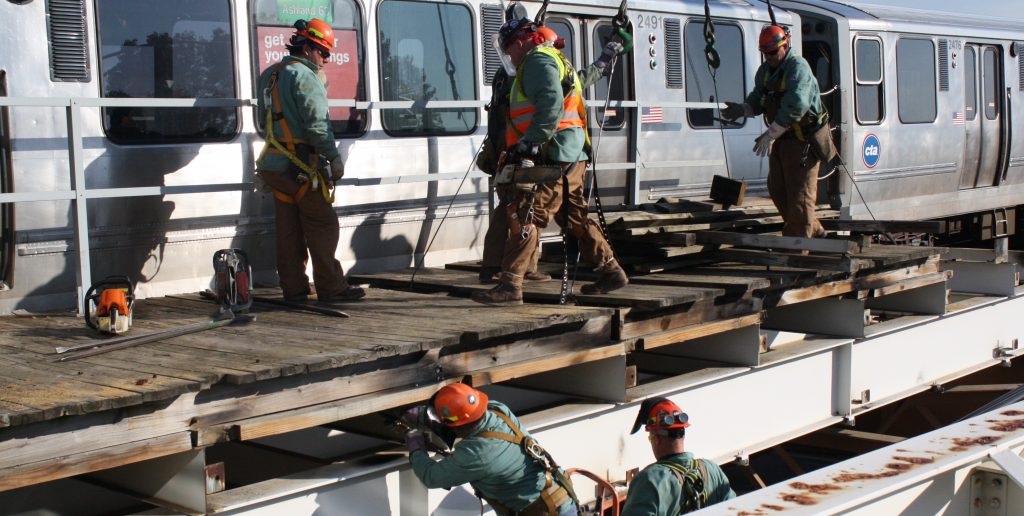
Road and public transit maintenance create more jobs than building new highways

With Congress charged with passing a long-term transportation law this year, many hope that increased infrastructure spending will create more jobs. We have to remember that not all infrastructure spending is equal: road and public transit maintenance projects actually create more jobs than highway expansion projects.

The first goal of transportation infrastructure investment is getting people and goods where they need to go. When that investment is part of a package to jumpstart the economy, an important secondary goal is creating new jobs. But in the past, Congress has failed to require states to pick the best investments to do this, partially due to the misconception that spending funds on big highway expansion projects creates a lot of jobs. Dollar-for-dollar, it doesn’t.
Take the American Reinvestment and Recovery Act (ARRA). Between 2009 and 2010, ARRA gave states $26 billion to spend on surface transportation capital projects and $8.4 billion for public transportation capital projects, as we wrote in our joint report with Smart Growth America analyzing this bill last year. States were required to report how they spent that money, and how many jobs they created with it.
Because of that requirement, we know that every ARRA dollar spent on public transportation produced 70 percent more job hours than an ARRA dollar spent on highways. Transit preventive maintenance produced the most jobs out of the main categories for ARRA transit spending, including rail car purchase and rehabilitation, transit infrastructure, and bus purchase and rehabilitation.
Similarly, road repair produces 16 percent more jobs per dollar than new road construction, according to 2009 research from Smart Growth America and the University of Utah. This makes sense: maintenance jobs are open to more kinds of workers, spend less money on equipment and more on wages, and spend less time on plans and permits. Meanwhile, new capacity projects require more funding for buying costly property, which has little or no stimulative or reinvestment value, as we wrote in our joint recommendations for any and all COVID-19 relief packages with Smart Growth America.
Unfortunately, we can’t know if investments in transit maintenance or transit operations (the costs of running a transit agency, as opposed to the costs to construct or maintain transit infrastructure) produce more jobs, because ARRA forbade states from spending funds on operations. But we do know that transit operations funding often goes straight to employees’ wages.
Prioritizing funds on roadway and public transit maintenance is also popular with voters. In a March 2020 poll conducted by Transportation for America and several partners, 79 percent of respondents said that they want to focus federal funding on fixing roads and public transit.
With current long-term transportation policy expiring in September—at the same time our economy is struggling to recover from an unprecedented pandemic—Congress has an opportunity to create the most new jobs and finally rebuild our “crumbling infrastructure.” All by simply increasing funding for transit maintenance and requiring that states fix-it-first: maintain their existing roadways before building new ones.



